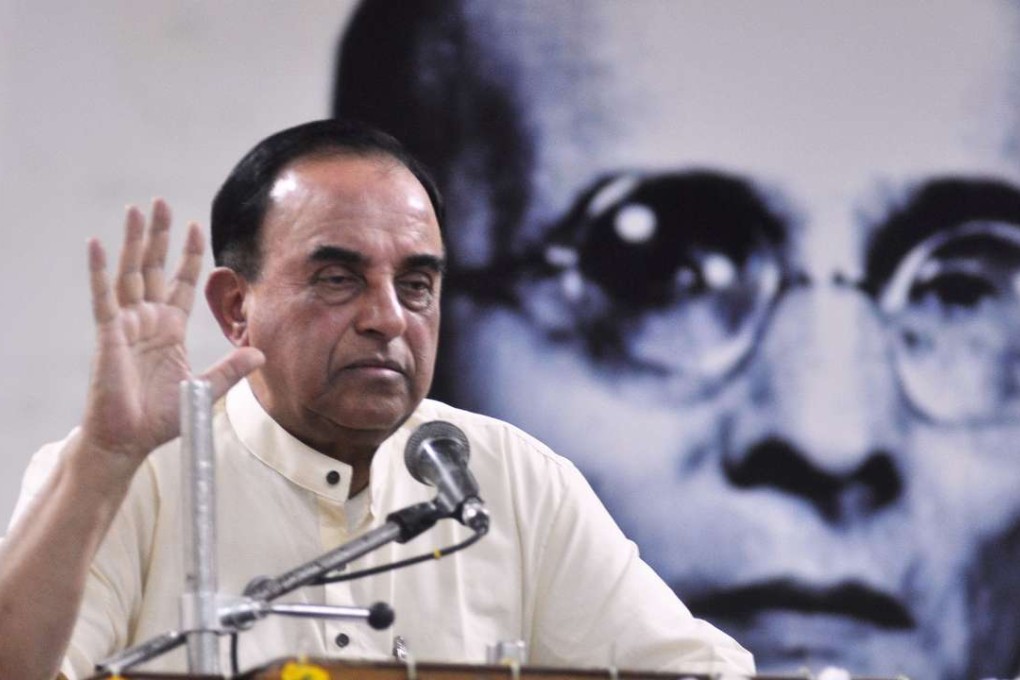India’s China policy off target, says Modi’s Mandarin-speaking ‘guided missile’
Delhi’s go-to guy for talking to Beijing is one of the few Indian leaders who openly advocate closer ties. Maverick he may be, but there’s reason to believe he’s not alone

“Indian and Chinese brains must be very differently wired,” China historian John Fairbank quipped to Subramanian Swamy one wintry morning in Harvard circa 1963. “I have never seen an Indian who has managed to learn Chinese.”
That little joke was enough to get young Swamy to take up the challenge of learning Mandarin. Having finished his PhD in economics in one and a half years, he had plenty of time on hand. He learnt Mandarin in six months, he says, after which Harvard asked him to teach a course in Chinese economic history.
Modi’s key aide blames poor planning for India’s currency crisis
Thus started the 76-year-old maverick parliamentarian’s long association with China, marking him out as a rare Indian politician with a deep understanding of China and extensive contacts in China’s power circles. In the course of the 40-odd years in public life that would follow, Swamy would earn a reputation as a crusader against corruption and unpredictable muckraker and litigant par excellence. He played a major role in the court case against the multibillion-dollar mobile telephony licensing scandal in the last Congress-led government, which paved the way for the rise of Narendra Modi’s Bharatiya Janata Party (BJP) to power in 2014 and gave him a cult following among BJP cadres. He is now doggedly pursuing an embezzlement lawsuit against Congress president Sonia Gandhi and her son Rahul.

But his deep China connections would also make him a go-to guy in Delhi to communicate with China. In 1978, he was the first Indian politician to be sent to China to restart dialogue after the 1962 border war that saw all relations broken off. And it was his meeting with Deng Xiaoping (鄧小平) in 1981 that would prompt China to reopen the sacred Kailash-Manasarovar route in Tibet (西藏) for Hindu pilgrims.
When Xi meets Modi, a little less love this time
A straight talker, Swamy is one of the very few Indian leaders who openly advocate better relations with China. In a country where China is widely viewed with suspicion and the political class is wary of appearing even remotely pro-China, Swami’s China-friendly worldview was never going to be easy. But, of late, it seems to have got even tougher. After years of rapid rapprochement, there are signs the two Asian giants may be drifting apart. India resents China’s forays into the Indian Ocean, blames it for blocking its entry into the elite Nuclear Suppliers Group, and for siding with Pakistan. China has been carefully watching India flirt with the South China issue and its overtures to the US and Japan.